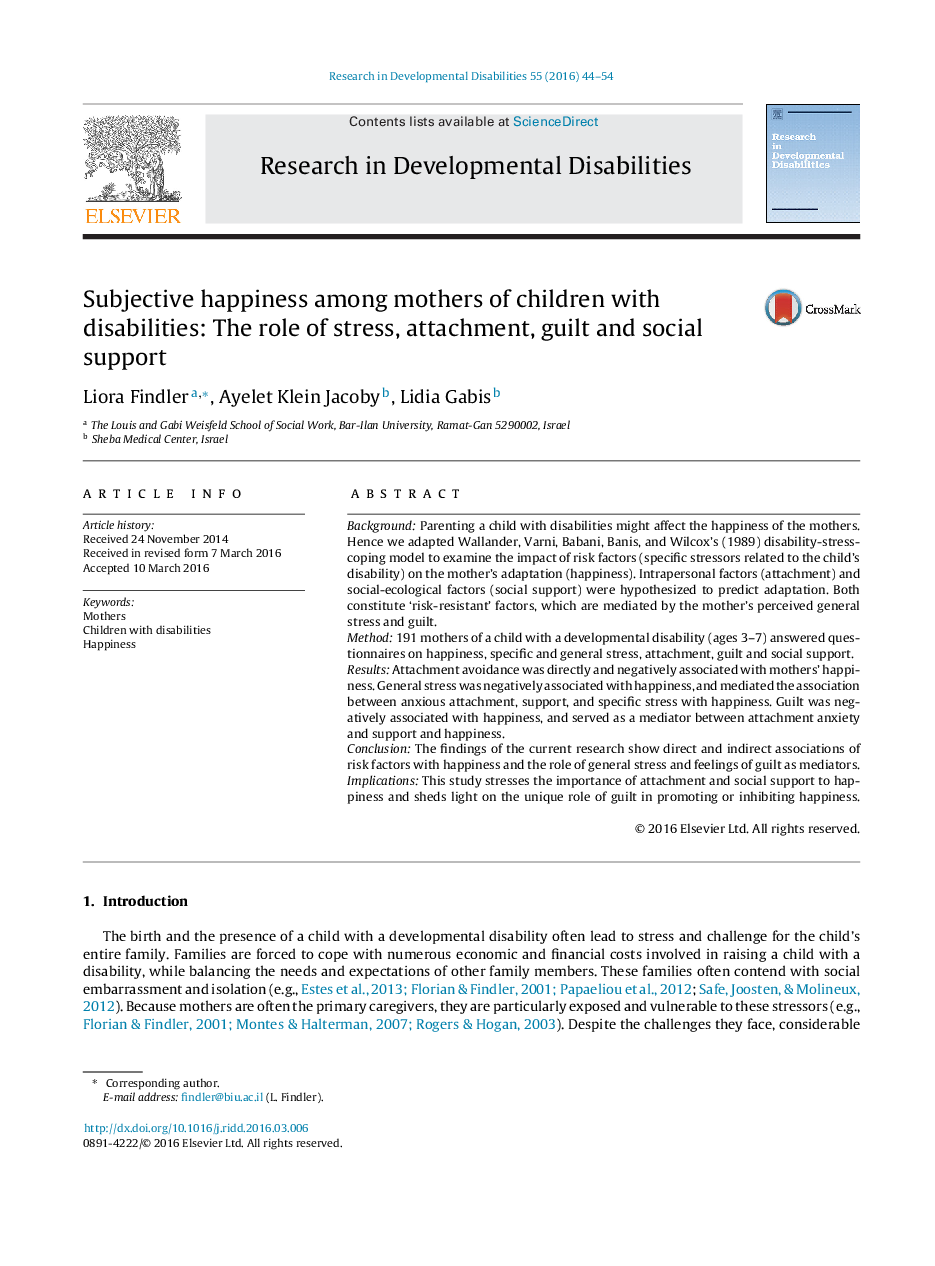| کد مقاله | کد نشریه | سال انتشار | مقاله انگلیسی | نسخه تمام متن |
|---|---|---|---|---|
| 371074 | 621896 | 2016 | 11 صفحه PDF | دانلود رایگان |
Findings show that among mothers of children with disabilities:
• Avoidance, anxiety, social support, general stress and guilt predict happiness.
• Lower attachment avoidance is directly associated with higher happiness levels.
• Guilt serves as a mediator between attachment anxiety, social support and happiness.
• General stress mediates between anxiety, support, specific stress and happiness.
BackgroundParenting a child with disabilities might affect the happiness of the mothers. Hence we adapted Wallander, Varni, Babani, Banis, and Wilcox’s (1989) disability-stress-coping model to examine the impact of risk factors (specific stressors related to the child’s disability) on the mother’s adaptation (happiness). Intrapersonal factors (attachment) and social-ecological factors (social support) were hypothesized to predict adaptation. Both constitute ‘risk-resistant' factors, which are mediated by the mother’s perceived general stress and guilt.Method191 mothers of a child with a developmental disability (ages 3–7) answered questionnaires on happiness, specific and general stress, attachment, guilt and social support.ResultsAttachment avoidance was directly and negatively associated with mothers’ happiness. General stress was negatively associated with happiness, and mediated the association between anxious attachment, support, and specific stress with happiness. Guilt was negatively associated with happiness, and served as a mediator between attachment anxiety and support and happiness.ConclusionThe findings of the current research show direct and indirect associations of risk factors with happiness and the role of general stress and feelings of guilt as mediators.ImplicationsThis study stresses the importance of attachment and social support to happiness and sheds light on the unique role of guilt in promoting or inhibiting happiness.
Journal: Research in Developmental Disabilities - Volume 55, August 2016, Pages 44–54
